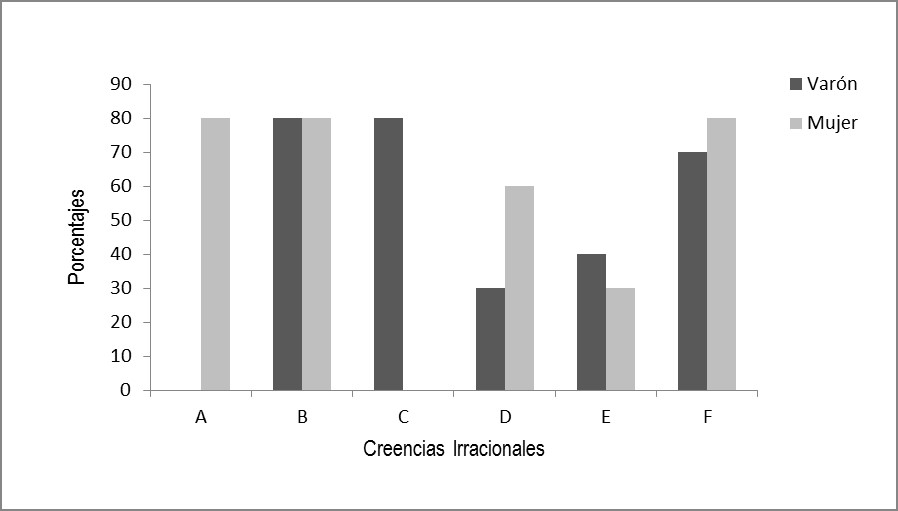Creencias irracionales y pensamientos automáticos en una relación de pareja. Estudio de caso clínico atendido en un Centro de Servicios Psicológicos de una Universidad Nacional de Lima
DOI:
https://doi.org/10.33017/RevECIPeru2017.0015/Keywords:
Irrational belief, automatic thinking, couple relationship, psychodiagnostic processAbstract
The objective of this study is to identify irrational beliefs and automatic thoughts in a couple relationship attended in a Psychological Services Center of a National University of Lima and provide knowledge of the psychodiagnostic process from the cognitive - behavioral approach. The couple is made up of a 23-year-old man and a 27-year-old woman. The History Opening Cards were applied; the Psychological Cognitive Behavioral History; Record of Opinions Form A, adapted by Percy Guzmán (2009) [10] and Inventory of Automatic Thoughts, adapted by Ruiz and Luján (1991) [8]. The study is exploratory with descriptive analysis. The results obtained indicate that the irrational beliefs with the highest percentage in men is the irrational belief B and C with 80%, while the highest percentage in women is the irrational belief A, B and C with 80%. The automatic thought with greater percentage in the man is the one of "divine reward" with a 70%, whereas the automatic thoughts with greater percentage in the woman are the one of "filtraje", "catastrophic vision", "deceit of justice", "Global label", "guilt" and "you should" with 90%. It is concluded that the Forma A Record of Opinions and the Inventory of Automatic Thoughts complement each other and contribute to the conceptualization of the problem and cognitive diagnosis in a clinical case of a couple relationship during the psychodiagnostic process from the cognitive - behavioral approach.


